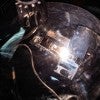
Graphene gets enhanced by flashing
Rice University scientists who developed the flash Joule heating process to make graphene have found a way to produce doped graphene to customize it for applications.

Graphene gets enhanced by flashing
Rice University scientists who developed the flash Joule heating process to make graphene have found a way to produce doped graphene to customize it for applications.

A ‘quasi-juvenile delinquent’ at Rice rises to the top -- again
Rice University alumnus Dennis Sullivan wins the Abel Prize in Mathematics.
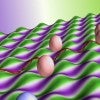
Don’t underestimate undulating graphene
A theory by Rice University scientists suggests putting graphene on an undulating surface stresses it enough to create a minute electromagnetic field. The phenomenon could be useful for creating 2D electron optics or valleytronics devices.

Wind, solar could replace coal power in Texas
A fraction of the wind and solar projects already proposed in Texas could eliminate the state’s remaining coal power plants and their emissions, according to Rice University engineers.

Thomas Senftle wins NSF CAREER Award
Rice University chemical and biomolecular engineer Thomas Senftle has won a National Science Foundation CAREER Award to advance machine learning techniques for designing new catalysts.

Run not just fun for Rice students, elementary partners
Getting out and mentoring elementary students in physical fitness turns out to be just as beneficial for college students, Rice University study finds.

Saudi Aramco joins Rice University’s Carbon Hub
Saudi Aramco joins Rice’s Carbon Hub research initiative to accelerate the energy transition by developing sustainable uses of hydrocarbons.

Models for molecules show unexpected physics
Rice engineers discover unusual properties in magnetized colloids that surprisingly adhere to the physics described by Kelvin’s equation, which models the thermodynamics of molecular systems.

COVID-19 variants can’t hide from Variabel
Rice computer scientists introduce Variabel, which uses sequencing data to identify “low-frequency variants” of SARS-CoV-2 in public data sets. The program has also been tested on data from patients with Ebola and norovirus.
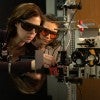
Closer look helps Rice lab ponder when a protein’s prone to wander
Rice chemists have discovered surface interactions could be tunable at the single-protein level
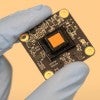
Bio-FlatScope dives deep for useful data
The lensless Bio-FlatScope is a small, inexpensive camera to monitor biological activity that can’t be captured by conventional instruments. The device could eventually be used to look for signs of cancer or sepsis or become a valuable endoscopy tool.

Vicky Yao wins CAREER Award
Computer scientist Vicky Yao has won an NSF CAREER Award to develop computational tools to analyze and interpret DNA methylation.

Gas flares tied to premature deaths
Rice engineers suggest that flaring of natural gas at oil and gas fields in the United States, primarily in North Dakota and Texas, contributed to dozens of premature deaths in 2019.

Army touts Rice contribution to graphene collaboration
Rice's graphene research is making its presence felt in the U.S. Army’s work to develop applications using the single-atom-thick form of carbon.
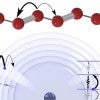
Physicists harness electrons to make ‘synthetic dimensions’
Rice University physicists have learned to manipulate electrons in gigantic Rydberg atoms with such precision they can create “synthetic dimensions” where the system acts as if it had extra spatial dimensions, which are important tools for quantum simulations.